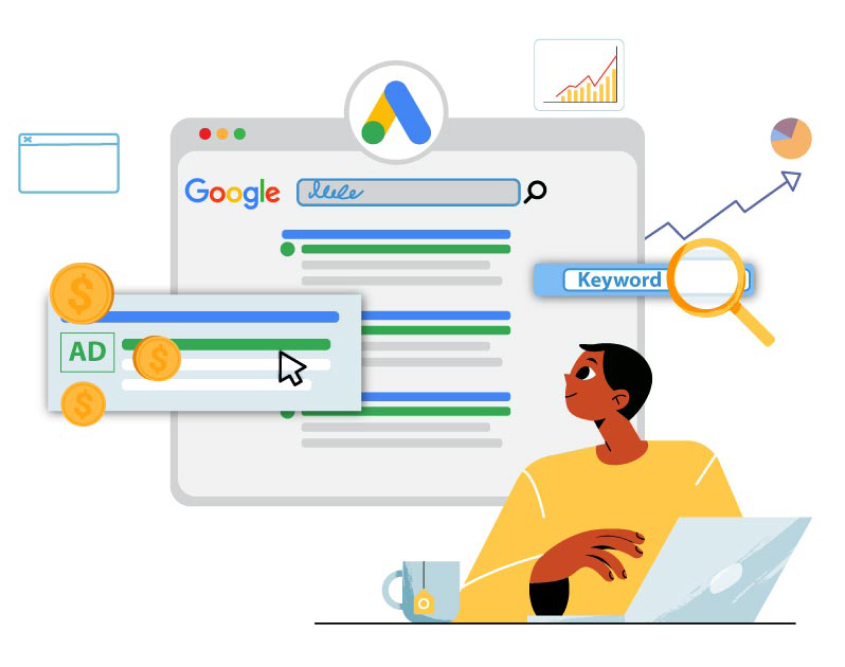2023 SEO Trends Every Small Business Should Follow
Search engine optimisation (SEO) becomes more complex, advanced, and sophisticated with each passing year as Google rolls out new algorithms and tweaks the older ones. The new year 2023 has been explosive so far, with ChatGPT following on the heels of a bunch of AI assisted SEO tools that were introduced in 2022 or even before that. In this post, we’ll explore a few of the latest SEO trends and suggest actions that would keep you ahead of the tech curve and on top of the search listings this year. Here we go!
Top 3 SEO Trends You Should Keep Up With
- AI Powered Tools are Moving Centre Stage
Right off the bat, OpenAI’s ChatGPT has brought AI led exploitation of the large language model (LLM) out into the open. However, tools such as Surfer, Jasper and Frase had already been helping with search engine optimisation for some time before OpenAI unleashed its monster. Not many people knew about AI writers that have existed for a few years. But, in 2023, the cat is fully out of the bag. More people would be using these tools to climb higher and higher on search engine result pages (SERPs).

There are two types of tools that concern most online businesses: content generation tools and search engine optimisation tools. Both are interrelated because SEO also depends on content. The available AI tools can help create text as well as images and videos. Are they any good, though? Can they help you achieve higher Google rankings? The answer is yes, if you use your brain in tandem with the bots. Here’s what you need to do:
Actions
1. Use AI powered SEO tools. Use keyword research and optimisation tools such as Surfer, Frase, or Link Graph to quickly generate keyword ideas.
2. Humanise AI content. When generating AI content, make sure you make it more targeted and ‘human’ by using a conversational tone, a personal touch, geographical context, humour, and emotion. - Google Adds ‘Experience’ to ‘EAT’
In December 2022, Google added another E to its EAT mantra for ranking websites. EAT has become EEAT in 2023, with the additional E standing for ‘Experience’. In case you’re wondering, here’s what these letters stand for:
E: Experience
E: Expertise
A: Authoritativeness
T: TrustworthinessFor the last 10 years or so, Google has been using the EAT principle to evaluate the quality and reliability of online content. While there is no single EAT score that Google assigns to a website, sites and pages that exhibit high levels of EAT are still more likely to rank higher in search engine results pages (SERPs) than those with lower levels.
To improve your website’s EAT, it is essential to create high-quality content that is accurate, trustworthy, and demonstrates your expertise in the subject matter. Additionally, having a strong online reputation and positive user reviews can also contribute to improving your EAT.

The new E (i.e. Experience) signifies the real-world experience of the content creator in the topics on which they are creating content. For example, the element of Experience is high if you have a doctor writing on medical topics, but low if a doctor of medicine is blogging about SEO. So, how is Experience different from Expertise? Simply put, the element of Expertise refers to the content whereas the Experience has more to do with the person who is writing the content.
Actions
1. Engage expert authors. Make sure your content is written by subject-matter experts with real-world experience
2. Highlight author experience. Publish author bios along with the content and create an authors’ page on your website. - Satisfying Content is Likely to Rank Higher
In August last year, Google tweaked its search algorithms to give even more weight to the helpfulness of the content. Although Google has always tried to present users with the most helpful content, the improved machine-learning algorithm stresses on the satisfaction level of the content. Google thinks that content that satisfies the user should rank higher compared to content that leaves them thirsting for more. Here’s what Google has to say:The helpful content system aims to better reward content where visitors feel they’ve had a satisfying experience, while content that doesn’t meet a visitor’s expectations won’t perform as well.

But, how do you measure the satisfaction level or helpfulness of content? To satisfy users, content has to be relevant to the search query as well as the website’s main subject focus. It should be targeted at a specific audience, like this blog post is aimed at small business owners. The content should be created for users and not for search engine spiders. And, as we discussed above, it should be created by experienced writers who have expertise in the subject.
Actions
Prioritise quality over quantity. Instead of writing thin and unsatisfying content on every relevant keyword out there, target a bunch of high-volume, low-competition keywords and create truly helpful and expert content around them.
1. Improve your keyword targeting strategy. Look for the type of content that is ranking higher for specific keywords
2. Try to win the Google Knowledge Panel. Research and answer key customer questions in your content.
In Conclusion
So, there you have it, the top SEO trends that you need to keep up with in 2023. Additionally, there are many other latest trends such as SEO automation, Google Shopping optimisation, and product page optimisation. Align your SEO with the latest trends and if you don’t have the time or the expertise, get in touch with a digital marketing agency who does.








